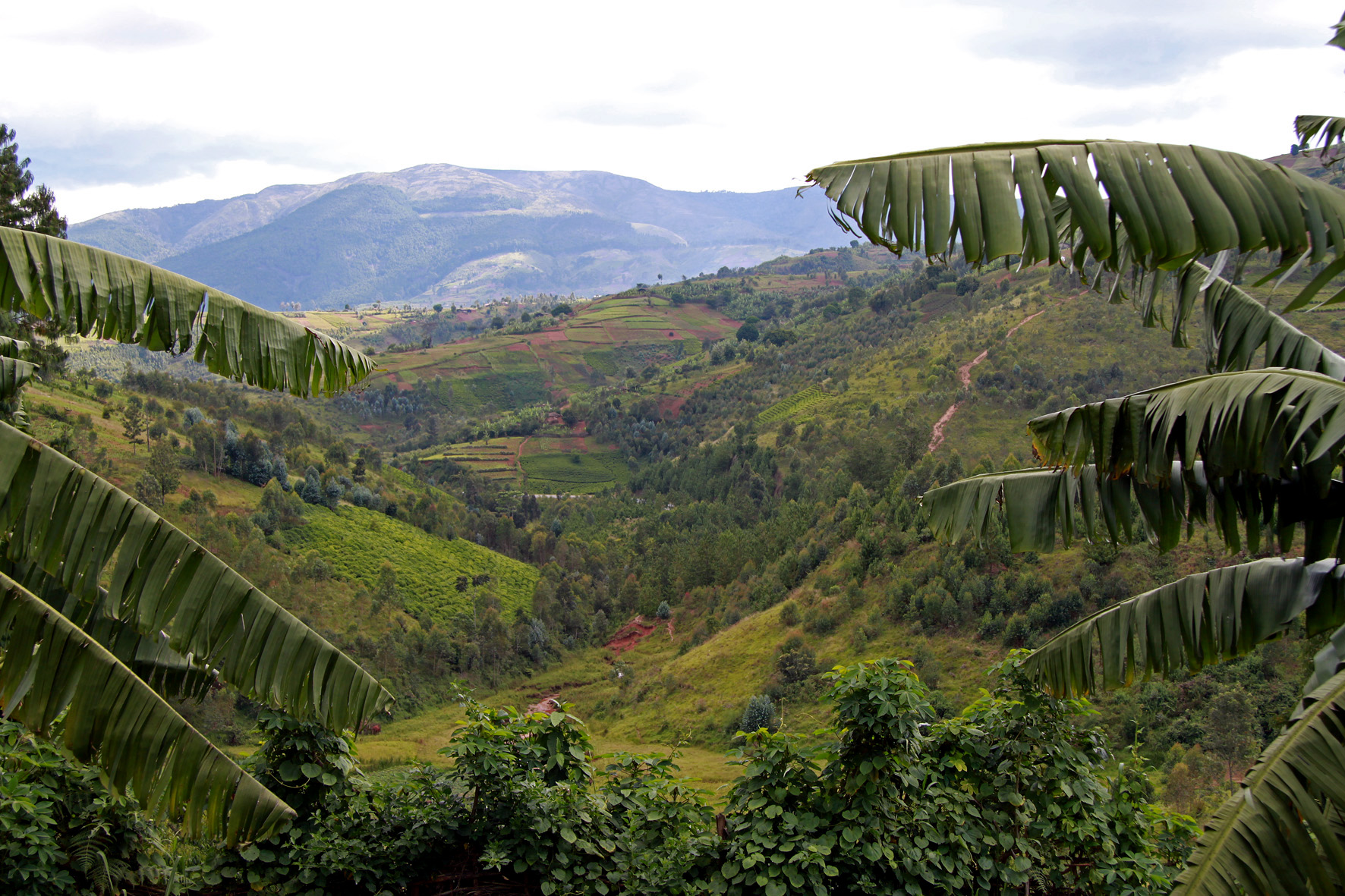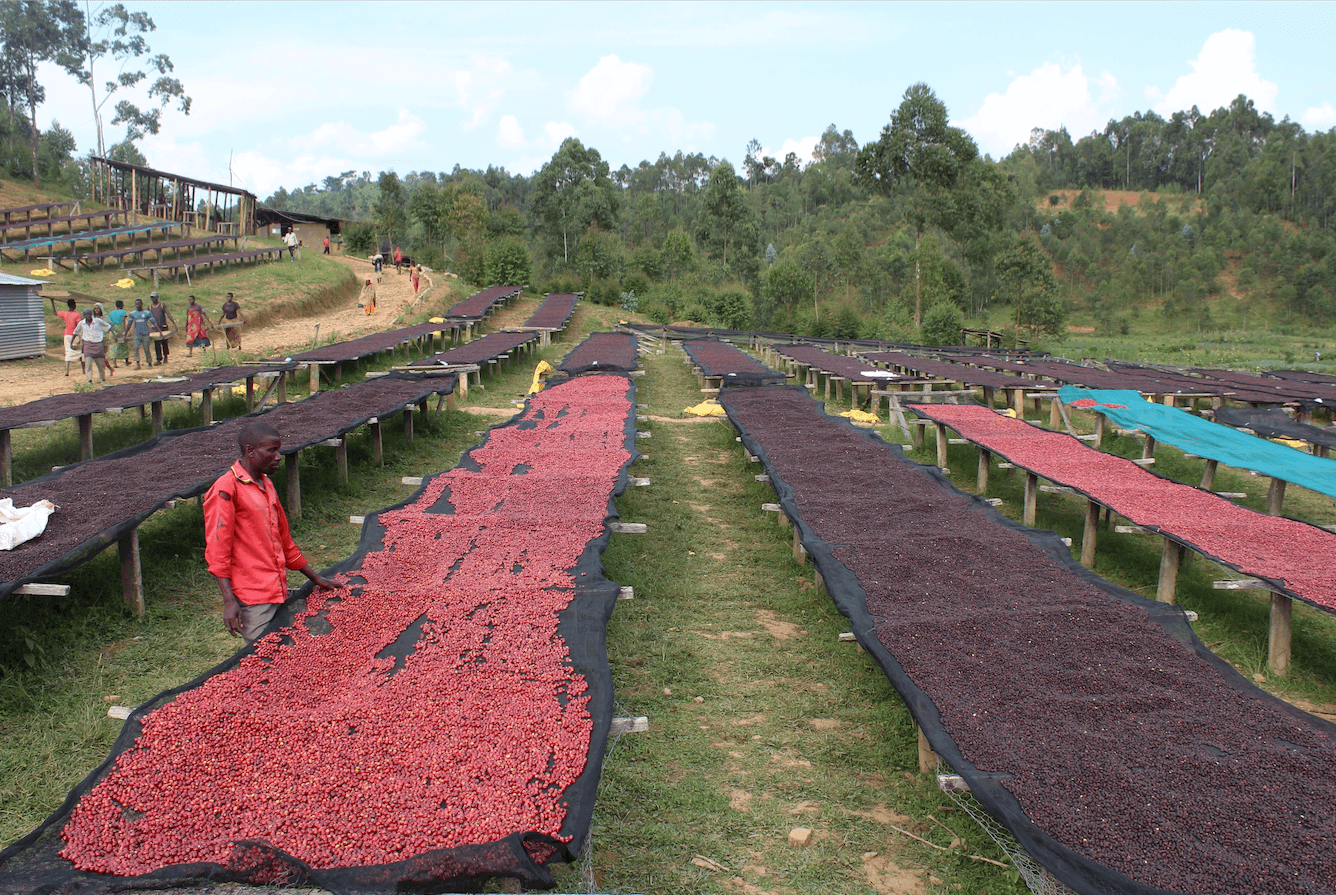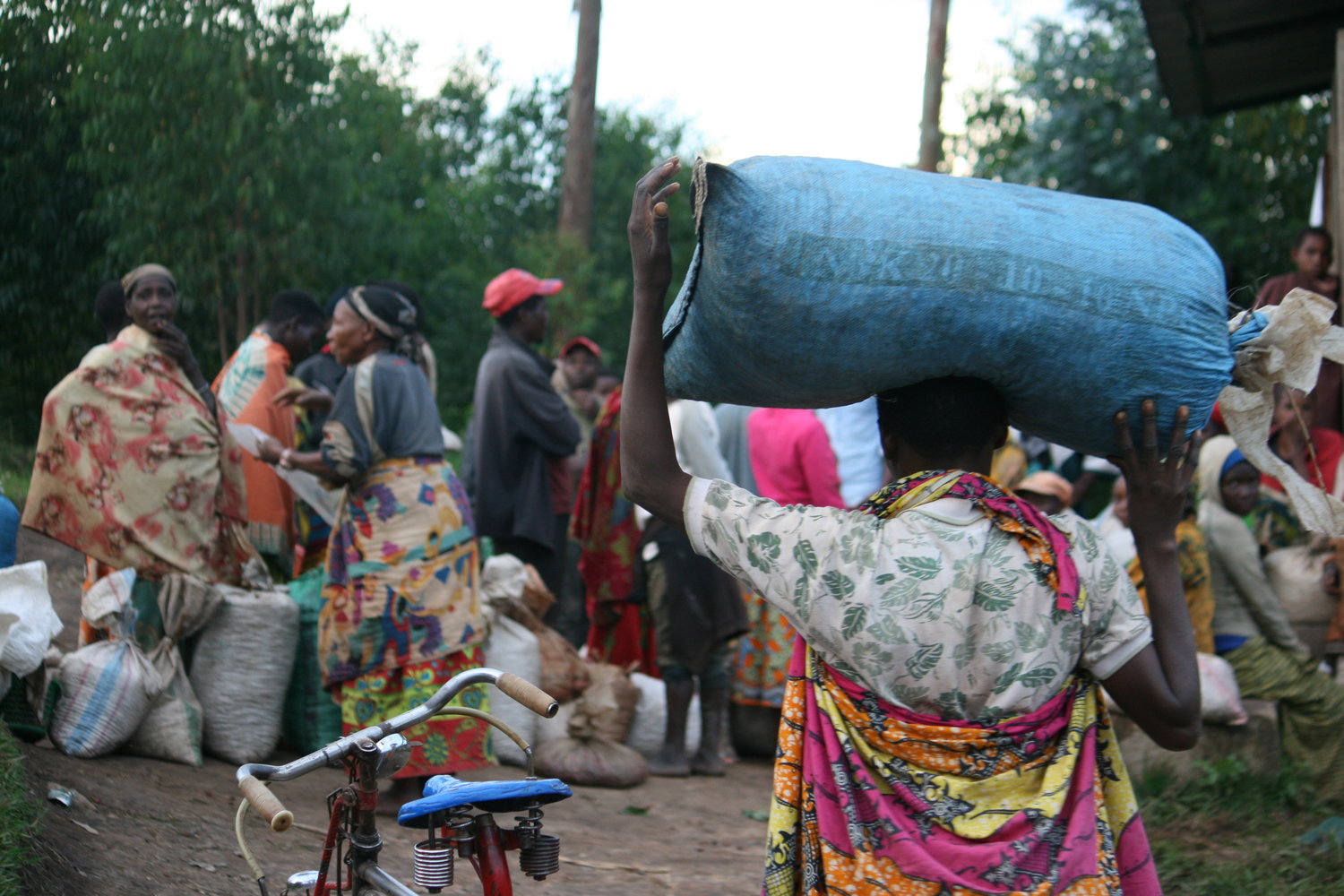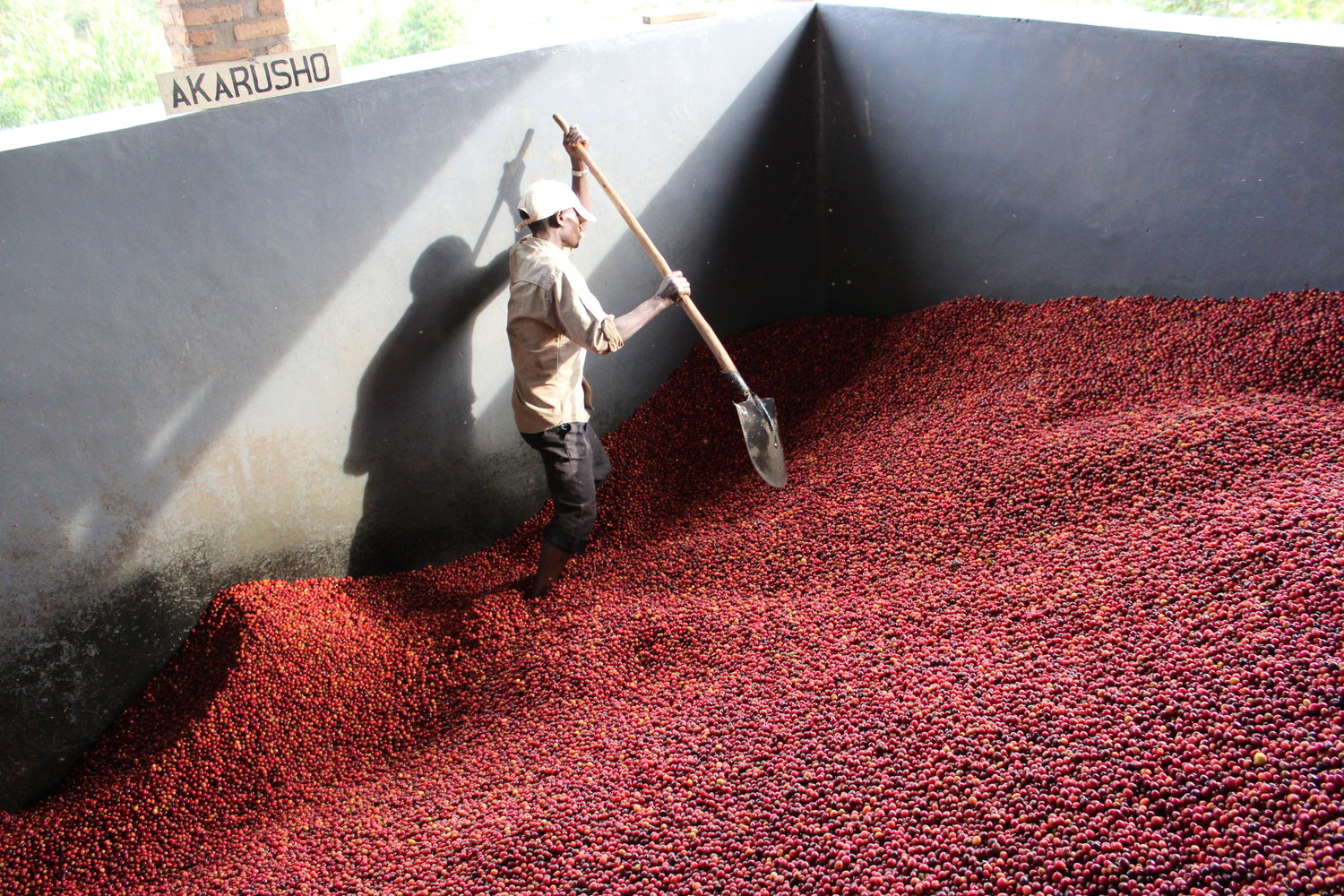In Burundi, coffee provides a living for more than 2 million people in a country whose population is around 11 million and whose unemployment rate is over 50%. That being so, coffee is an industry that supports and drives the country’s economy.
Due to Burundi’s location and the fact that it offers ideal farming and weather conditions, in 1940, the colonial Belgian government introduced coffee production and export to the country. All coffee trees in Burundi are Red Bourbons and are monitored by the government for quality control.
The coffees we offer at Nomad are Burundi Gahahe and Burundi Nemba. Both are found in the northern province of Kayanza, close to the border with Rwanda, at an altitude of over 1,800 m above sea level. Kayanza has a reputation for being one of Burundi’s best coffee-producing regions due to its high altitudes, rich volcanic soil and experienced farmers. The region is also known for being the water source of the river Nile.

In order to understand how these and other washing stations in northern Burundi work, we first need to know Greenco: this company oversees and manages washing stations throughout the production chain in Kayanza. They first began their work back in 2015 and since then have dominated every Burundi Cup of Excellence competition. The Greenco agricultural engineers provide support for more than 1,500 farming families at their 13 central washing stations. The agricultural engineers are responsible for ensuring the best agricultural practices, educating and collaborating with the coffee cherry producers before, during and after the harvest. They also ensure that the producers have the necessary tools and knowledge to manage and decide upon the most appropriate agricultural practices for their own farms.

The Gahahe washing station is located in Gahahe at an altitude of 1,805 m above sea level. It is equipped with 10 fermentation tanks, 4 selection tables, 2 reception tanks and a drying terrace with 180 drying tables and 18 pre-drying tables, which can process up to 750 metric tonnes of coffee per season. The washing station collects cherries from many families with smallholdings, each composed of around 200 trees that are harvested exclusively by hand. Once dry, the parchment coffee is bagged and taken to store rooms. Greenco’s expert cupping team assesses each batch in the laboratory, which are separated by station, date and quality, ensuring the traceability of the station, date and quality is registered throughout the entire process.

The Nemba washing station is located at an altitude of 1,818 m above sea level, near the Kibira National Park. This washing station collects cherries from over 2,600 coffee farmers and can process more than 400 tonnes of coffee per season. They use a monitoring system to guarantee traceability throughout the production and processing chain, and have over 200 drying tables at their disposal, capable of processing up to 750 metric tonnes of coffee cherries per year.
The organisations that operate here are constantly striving to produce better coffee, as they know this area boasts such excellent conditions. In the long term, they will be able to charge higher prices and strengthen Burundi’s economy, directly benefitting the families that work in this industry.
